To implement our current modern information system, we need computers, each of which is connected via an efficient network. Healthcare is the most essential component of our society, and many health care providers are struggling to provide patients with practical and active services.
Many people enter and exit a multi-specialty hospital in a day, making it difficult to keep track of their information safely. A hospital management system was created to ease these burdens and to handle the financial, administrative, and clinical elements of the hospital. Apart from that, organizing and implementing your hospital’s operations is not easy; you’ll need an excellent hospital management system to keep track of everything that goes on in the labs and hospitals.
What type of Management is Important in Hospital Management?
Healthcare administrators are in charge of mission-critical activities on both the business and healthcare sides of modern medical practices, making this a particularly difficult job.
Healthcare administrators should have knowledge, abilities, and experience in the following areas:
- Strategic planning, operations, and finance
- Human resources
- Project management
- Policy management
- Operations management, supervision, and decision-making
Healthcare administrators play a key role in any organization where they work as a result of all of these tasks, as they are accountable for ensuring the organization’s continuous success.
Top 12 Tips for improving health care management:
Here you will learn about the Ten most effective health care management tips
Staff development:
When you hire new employees, it’s critical to train them to be successful supervisors. Encourage them to participate in management training while you train your current employees in both technology and management. If you can’t train your workers on-site, urge them to enroll in online courses where they can be trained and get a postgraduate degree in IT management. Despite the fact that healthcare systems are quickly becoming digital, many hospital workers lack awareness of cloud image storage technology.
Set Goals:
Set concrete and measurable goals in the areas you see as most in need of development based on the results of the above exercise. These ought to be exact and quantifiable.
Safe: Protect patients from harm caused by the care that is supposed to help them.
Effective: Care should be based on science; avoid overusing ineffective care and underusing effective care.
Patient-centered: Value the individual and their freedom of choice.
Timely: Reduce the number of times patients and caregivers have to wait.
Effective: Reduce waste with efficiency.
Equitable: Close racial and ethnic disparities in health status.
Utilize cutting-edge technology:
Hospital management that is effective extends beyond admitting patients and dealing with their issues. It includes a variety of activities, some of which are unrelated to medical yet are valuable to all hospital employees. For example, an automated healthcare system with DICOM and cloud image storage will minimize staff congestion, save time, improve service delivery, and assure better and more effective administration in your hospital.
Incorporate Human Factors Considerations:
Human factors is a body of knowledge regarding human skills, limitations, and other traits that are relevant to design, according to the Human Factors and Ergonomics Society. The application of human factors information to the design of tools, equipment, systems, processes, jobs, and surroundings for safe, comfortable, and successful human usage is known as human factors engineering. These are closely related to quality enhancement. Avoiding reliance on memory, standardizing procedures, and adopting protocols and checklists are all important human factors principles.
Human factors consideration in the design of healthcare systems and processes has many benefits, according to the National Center for Human Factors in Healthcare, including more efficient care processes, improved communication between medical providers, a better understanding of a patient’s medical condition, reduced risk of medical device and health IT-related errors, improved patient outcomes, and cost savings.
To manage key departments, hire the best people:
Some parts of the hospital are more critical than others. The admissions department, emergency rooms, surgical sector, and billing department, for example, require additional attention. To increase these regions’ services, hire the best people and buy the most advanced technology, such as storage image. Departments that are well-controlled show effective management and will leave patients satisfied.
Create a crisis-prevention culture:
It’s critical that each employee feels personally responsible for crisis prevention. Some crises are caused by the behavior of employees and those in their immediate environment. Your employees will grow more responsible as they become more aware of the implications of their behavior.
They’ll be more cautious and prepared to avoid a problem before it occurs.
Create a communication plan:
Poor communication is a problem that affects not only hospitals but also other industries. Bad communication between employees and doctors, between doctors and patients, and within the hospital system can lead to poor management, which could result in the entire system failing. Adopting correct communication tactics, such as specialized communication channels, can help your employees work together more effectively and strengthen the interaction between them and their patients.
Be patient-focused:
Everything your hospital does should be centered on improving patients’ experiences, from employing new employees to implementing new rules to developing new hospital tools. Patients are your customers, and if you can’t meet their demands, they’ll suffer or seek healthcare elsewhere.
Treat your patients well, use the greatest tools, and hire doctors who are well-educated. These are some of the characteristics of excellent hospital management.
Promote employee accountability:
Accountability is crucial to the success of any well-managed hospital system. Make your employees responsible for all responsibilities allocated to them. Your hospital will have made a significant improvement in management if everyone, even top doctors, conforms to accountability.
Create a system of healthcare delivery:
A managed care system should be implemented in all hospitals. A hospital with a better-managed care system completes its everyday activities quickly and effectively. Physicians must be on time, operations and surgeries must be completed quickly, in-demand medications must always be available, and everything in the hospital must be well-managed.
Change your contact information:
Some information in your hospital can be changed without notifying hospital management. If you alter your contact information and forget to update it on your records or website, your patients may suffer. Poor hospital management is demonstrated by outdated information details.
Goals and progress should be communicated:
Once your strategy is in place, make sure you communicate with your team and the rest of your business. Share both big and little achievements, as well as setbacks. Congratulate those who have contributed to your progress and have had an impact.
When your employees are invested in your strategy, it is more likely to succeed.
Conclusion:
Are you in charge of a hospital? How do you ensure that hospital management is efficient? If you’ve been having trouble with the assignment, try applying the above suggestions today and see how things change. Train your employees, hire qualified employees to lead essential departments, maintain a well-managed system, and incorporate new technologies into your hospital system.
FAQS:
Explain the major purpose of the Hospital Management system?
The hospital management system aids in the registration of complete patient data. It records and retains the patient’s medical history, treatment needs, past visit details, planned appointments (if any), reports, insurance information, and more. It reduces the need to collect these facts at each visit.
How might the hospital management system serve patients?
These are the advantages of the Hospital Management system:
- Technology that saves time.
- Avoiding human errors increased efficiency.
- Error’s scope is reduced.
- Data security and retrieval accuracy are now achievable.
- Cost-effective and simple to manage.
- Patient data is easily accessible, and patient history is accurate.
What is the best Hospital Management Software available?
These are some of the good Hospital Management software:
- MocDoc: MocDoc Hospital Management Software is the best solution that is completely integrated for any type of hospital from small to multi-chain hospitals.
- Insta
- Attune
- ITDose Infosystem
- Suvarna HIS
How to implement a Hospital Management System?
This is how we can implement a Hospital Management System:
- Registration of patients. The registration process involves adding patients to the system and issuing them unique IDs that they will use throughout their stay.
- Checkout.
- Treatment.
- Creating a data report
- System for billing.
- Search.
- Inventory Control.
- Statistics and data reports

